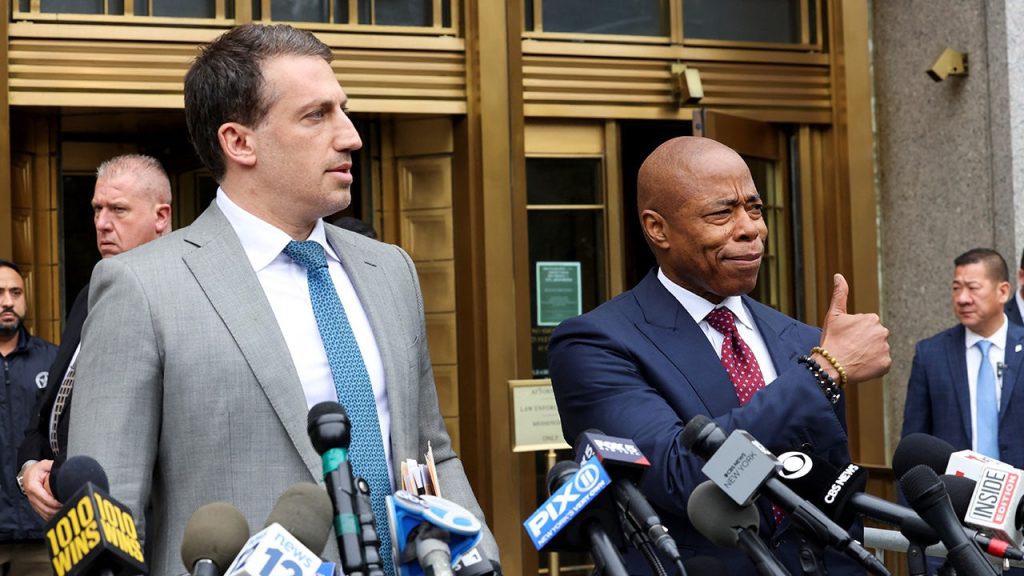Months after the Supreme Court set a precedent in a small-town bribery case, New York City Mayor Eric Adams is using the ruling to defend against federal corruption charges. The ruling established that not all payments to public officials are illegal, especially those that come after the fact and without evidence of a corrupt agreement. Adams is relying on this to argue that he did not accept any bribes and did not perform any official acts in exchange for any alleged payments. His lawyers are pointing to the Snyder case, where the Supreme Court found that a payment received by a former mayor was a gratuity, not a bribe.
In 2016, former Portage, Indiana Mayor James Snyder was convicted under the Section 666 law for accepting a payment from a Peterbilt dealer. The court found that Snyder accepted a gratuity, not a bribe, as the payment did not meet the definition of a bribe. The ruling raised questions about the definition of a bribe and the need to prove an official act took place in exchange for payments made to public officials. While prosecutors accused Snyder of taking kickbacks for overseeing a deal to buy garbage trucks for the city, the court found that the payments were not illegal under federal law.
Adams’ defense argues that the indictment against him does not meet the definition of bribery and does not amount to a federal crime. They claim that prosecutors have added vague allegations to their theory of bribery after the Supreme Court ruling in the Snyder case. The charges against Adams include conspiracy to receive campaign contributions from foreign nationals, wire fraud, and soliciting campaign contributions from foreign nationals. The case revolves around text messages Adams sent regarding assistance with the operation of a building in Manhattan while he was serving as Brooklyn Borough President.
Experts believe that Adams may have a chance at getting the bribery charge dismissed based on the precedent set by the Snyder case. The Supreme Court decision requiring an official act for a bribery conviction could weaken the government’s case against Adams, especially since he was not the mayor at the time the alleged actions took place. The defense is arguing that Adams did not have authority over the building in question and therefore could not have performed an official act in exchange for any alleged benefits.
Before the Justice Department announced Adams’ indictment, the mayor accused federal investigators of retaliation over his criticism of President Biden and Vice President Harris. The federal investigation into Adams has ensnared several people in his orbit, including campaign staffers, city officials, and his former police commissioner. The charges against Adams carry a potential sentence of up to 45 years in prison if convicted on all counts. The case has drawn comparisons to corruption rings of the past, such as the Tammany Hall era, due to the scale of the alleged corruption involving numerous individuals associated with the mayor.


